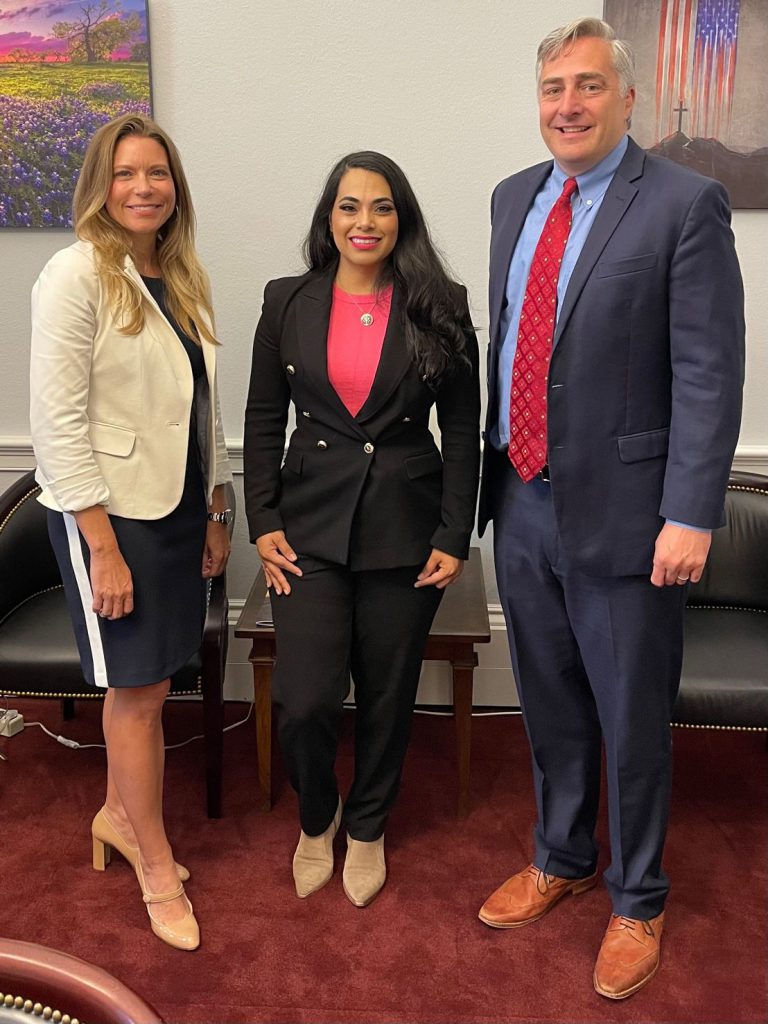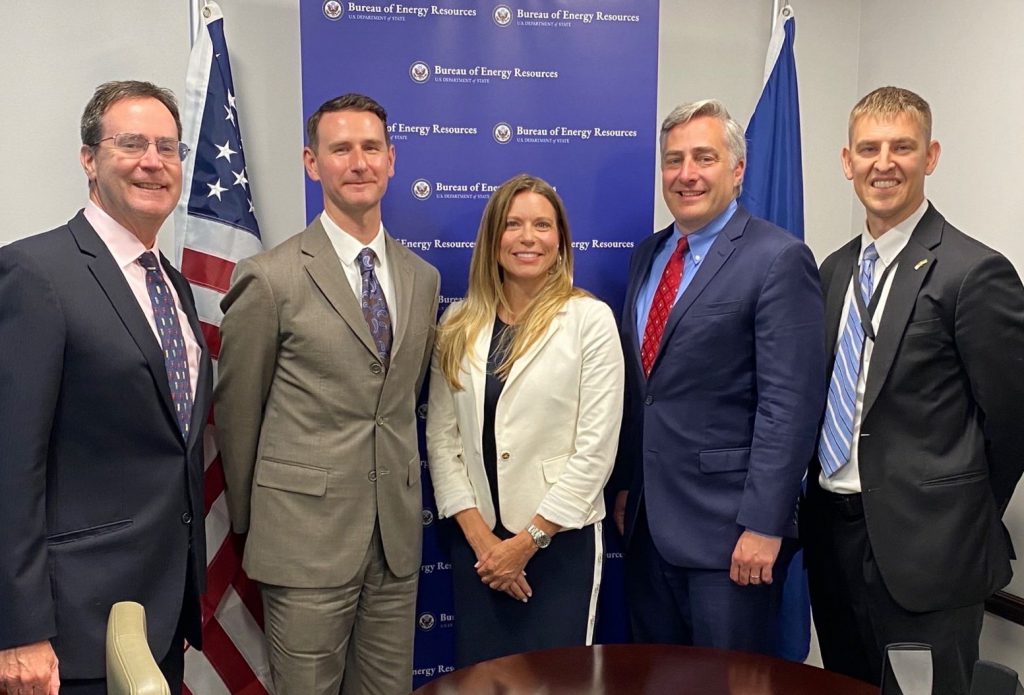
Against the backdrop of the reconciliation bill negotiations taking place on Capitol Hill, Energy Workforce leadership traveled to the nation’s capital to discuss energy issues and domestic production. CEO Leslie Beyer and SVP Government Affairs & Counsel Tim Tarpley met with Reps. Mayra Flores (R-TX-34), Bill Johnson (R-OH-06), Bruce Westerman (R-AR-04), and staff of Reps. Kelly Armstrong (R-ND-AL) and Lizzie Fletcher (D-TX7) on upcoming legislation that would impact the energy services sector.
Beyer and Tarpley spearheaded a series of bipartisan meetings with House Members to shore up support for the industry and energy services sector as negotiations on reconciliation take place. The $1.75 trillion social spending package is currently on hold after Sen. Joe Manchin announced his opposition given the costs and inflation. However, this announcement was then followed up by a claim that the Senator would wait until the Bureau of Labor Statistics publishes July’s Consumer Price Index on August 10. There are discussions on Capitol Hill of how to keep portions of the package alive, specifically those related to climate and energy provisions.
While at the State Department, Beyer and Tarpley met with the Bureau of Energy Resources including Carl Watson, Director, Office of Policy Analysis and Public Diplomacy, Matthew McManus and Marcus Lee to discuss shared priorities of expanding U.S. LNG exports and promoting U.S. emissions reducing technology.
Of major interest and concern to the energy services sector is the “methane fee” which originated in the original legislative package of “Build Back Better.” In November of 2021, the fee language was changed to be levied on a facility basis, with a staggered increase over the next three years. Under the new formula, companies would begin reporting in 2023 with fees increasing each year until 2025 — $900/ton for 2023, $1,200/ton in 2024, and $1,500/ton in 2025. Energy Workforce has advocated for this fee to not be included in the legislation, as it would increase the cost of U.S. oil and gas production at a time when higher prices are impacting Americans and the country’s energy security.

Democrats are under pressure to negotiate a reconciliation bill before September 30, which is the deadline for the procedure. Congress uses the legislative process of “reconciliation” to quickly pass high-priority legislation not subject to the Senate filibuster, giving it an advantage in budget and tax matters. With midterms approaching and the President’s approval numbers continuing to slip, the party must deliver some legislative wins after “Build Back Better,” President Biden’s signature framework, fell apart in 2021.
The Energy Workforce Government Affairs team will continue to monitor the progression of the reconciliation package and conduct outreach on Capitol Hill to discuss potential impacts on the energy services sector. For more information about policy and legislative outlook, contact SVP Government Affairs Tim Tarpley.
Maria Suarez-Simmons, Director Government Affairs, writes about industry-specific policies for the Energy Workforce & Technology Council. Click here to subscribe to the Energy Workforce newsletter, which highlights sector-specific issues, best practices, activities and more.




